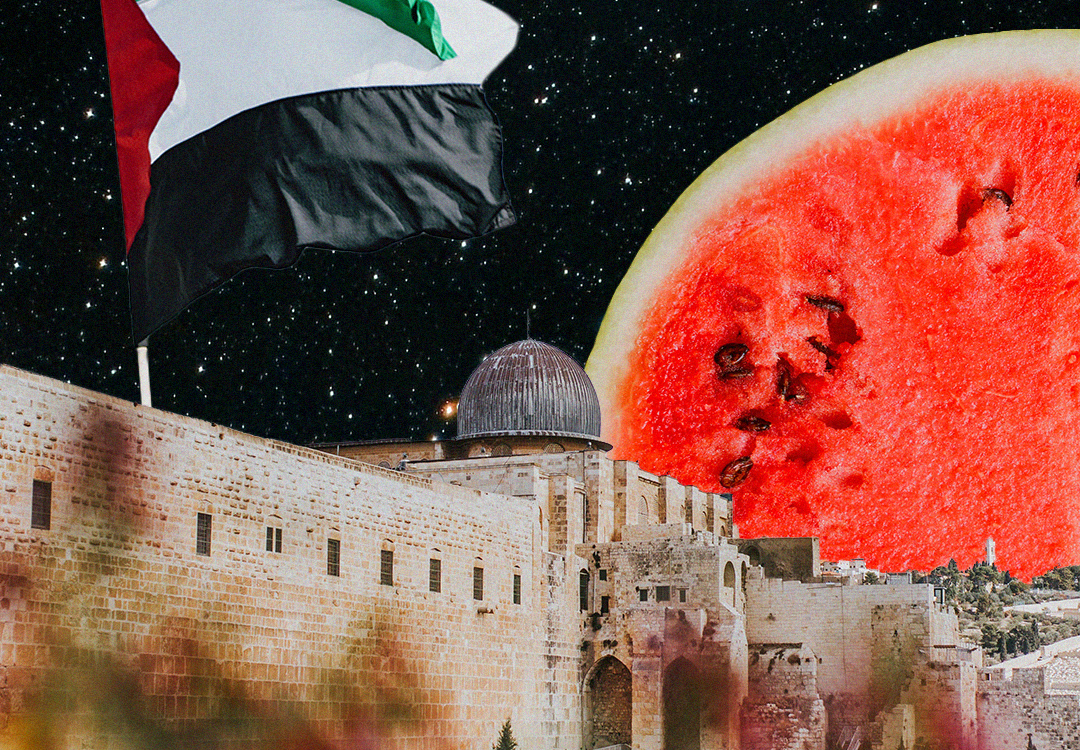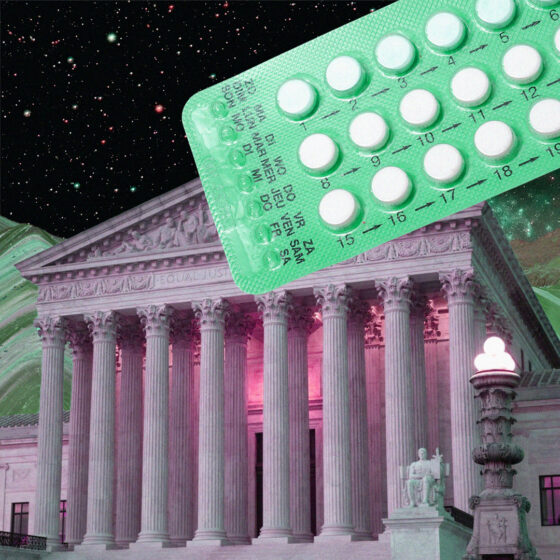I grew up next door to Palestine, in Egypt. When I moved to London, I made many Palestinian friends. There were so many of them here. They always wore the Palestinian kuffeyeh. They always made it known they were Palestinian, even though they always had to defend it. Defend it from people who said that Palestine didn’t exist, that it wasn’t on the map, that they had no right to it, that it was a political statement just to say who they were.
I grew up with a rough knowledge of the Nakba, which means “the catastrophe” in Arabic. The catastrophe that was 750,000 Palestinians expelled from their homes, the more than 400 Palestinian cities and towns that were systematically destroyed, the countless killed, in order to make way for the creation of Israel.
There are 7 million Palestinian refugees that live in the world today. In violation of international law, Israel bars them from returning home. Some of the Palestinians who still live in Palestine, or ‘Arab Israelis’, as they’re termed, live in what is known as the world’s largest open-air prison. Many are subject to discrimination and unequal laws, their food and electricity and access controlled by Israel.
It wasn’t okay to say any of that before last week.
People did, of course, but there were – there are – risks to it. Just look at what happened to Gigi and Bella Hadid – whose father is Palestinian – and to singer Dua Lipa. Over the weekend, the New York Times printed a full-page ad slandering them, for their vocal support of Palestinian human rights.
In truth, if there’s anything that’s “complicated” about the matter, it’s explaining why that is. After all, Human Rights Watch have condemned Israel’s actions, terming it apartheid and persecution. Their findings were published last month, before this latest escalation, but received little to no attention in the media.
As chef and author Dalia, known by @daliaskitchen on Instagram put it: “There are countless injustices in the world. But none are as widely misrepresented as the suffering of the Palestinian people. To side with their basic human rights is immediately deemed controversial. That alone proves how unjust it is.”
It’s described as “complicated”. People who speak up are accused of being anti-semitic. But Arabs are semites too, and there are many Palestinian and Arab Jews, and they all co-existed peacefully in Palestine before 1948. This is about many things, but it’s not about religion.
Anti-semitism, like hatred in all its forms, is abhorrent and never excusable. But conflating criticizing the actions of a government with criticizing every single Jew around the world, or even every Israeli, is a serious stretch, and is in part what has allowed this catastrophe to go on for as long as it has, unadvocated for in the way that it should be.
A ceasefire to the latest aggressions was called a few days ago. It’s a relief, but also a sobering reminder that ceasefire does little to resolve the daily oppression and violence that is inflicted on the Palestinians by the apartheid regime. A regime that has been ongoing for 73 years, and one that grows increasingly brave in the silence – and often support – of the world.
Over the last couple of weeks, it’s seemed like the tide is turning, the narrative being reclaimed. As Palestinian Salem Barahmeh tweeted: “There’s never been a moment in history where more people have supported Palestinian liberation. And it’s only growing by the day.”
The stories and the voices and the videos of Palestinians in Palestine, risking their lives to post on social media, the voices of the Palestinian diaspora around the world, and the voices of those rising in solidarity, are slicing through the silence and the gaslighting that has been blanketed over this catastrophe for so long. If it’s on our screens and in our faces, how can the world unsee or deny what it has seen?
What’s more, our capacity to engage with and understand the language of social justice has increased, our ability to reckon with how deeply entrenched, how pervasive, and ultimately how damaging the role of colonialism has been on the globe. So much of the language and the concepts needed to bust this conversation open have stemmed from the Black Lives Matter movement that surged last summer; the idea of inherent power imbalances foremost among them.
But alongside this growing movement, posts are still being censored on social media, journalists still losing their jobs, children kicked out of classrooms, threats and accusations aimed like daggers into comment sections and DMs of anyone who believes that Palestinians should be free. Mine included.
“It’s a bizarre feeling to have nothing else but our words to join the good fight, especially after so many years of being told our voices didn’t matter and attempts to suppress them,” a Palestinian friend wrote to me this week.
People speak of performative activism, they question what using their platforms or their voices will do, they complain of being pressured to speak up, or would prefer to stay out of the “complicated” situation. But there is power in solidarity, and we are already seeing the impacts of that.
Our words are powerful beyond measure. And when they’re finally beginning to unravel decades of silence, how can we not add ours to the growing call for Freedom for Palestine?









